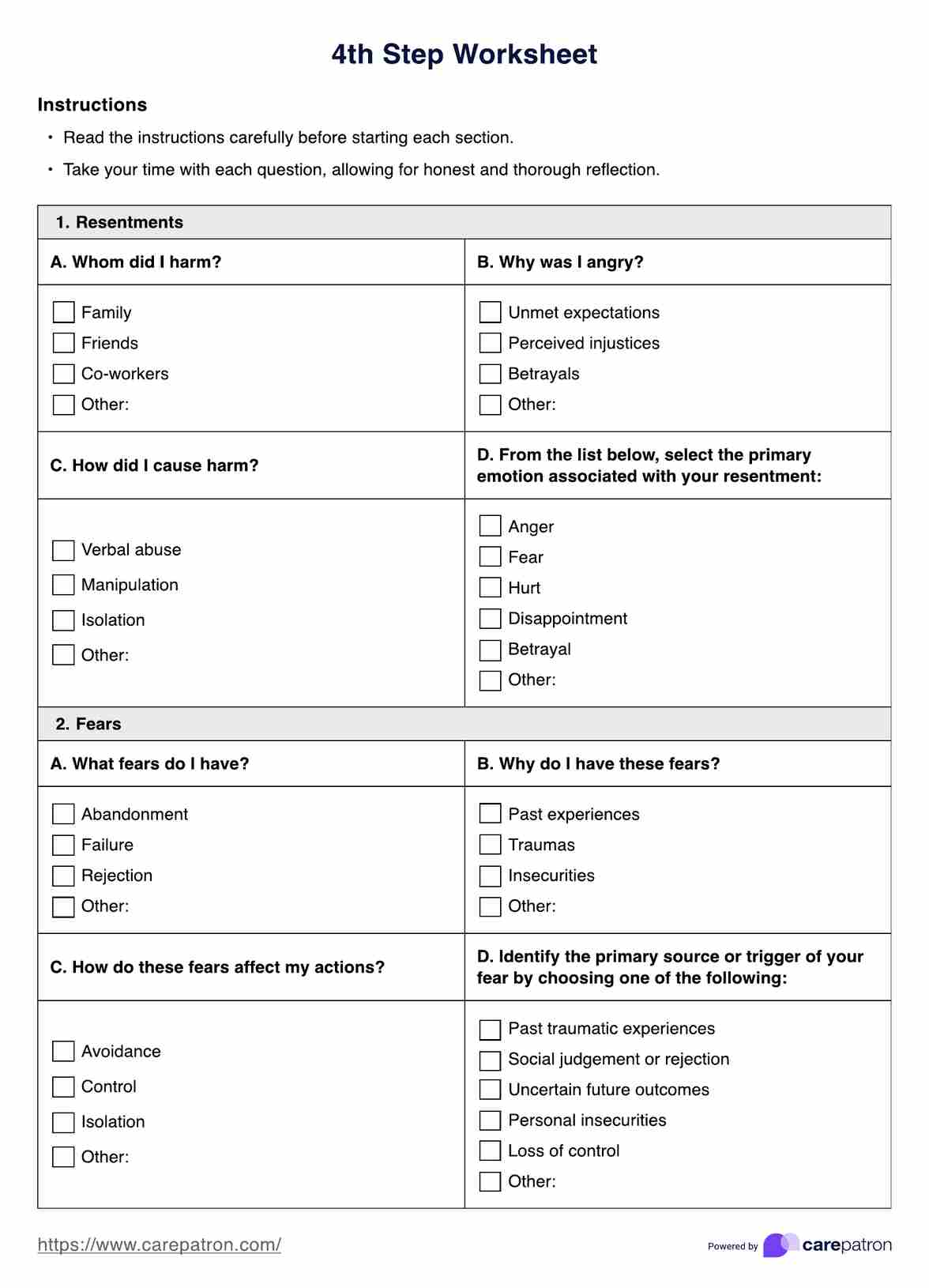To create a 4th Step Worksheet, individuals typically follow a structured template that includes questions related to resentments, fears, sexual conduct, and harm to others.

Explore inner healing through the 4th Step Worksheet. Address resentments, fears, and harms. Begin your path to recovery and personal growth now!
To create a 4th Step Worksheet, individuals typically follow a structured template that includes questions related to resentments, fears, sexual conduct, and harm to others.
These worksheets are often used during the recovery process in programs such as Alcoholics Anonymous.
They are designed to help individuals conduct a moral inventory of their actions, thoughts, and behaviors.
EHR and practice management software
*No credit card required
Free
$0/usd
Unlimited clients
Telehealth
1GB of storage
Client portal text
Automated billing and online payments